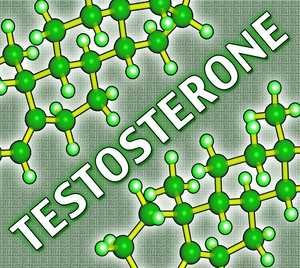Introduction to Testosterone Enanthate
Testosterone Enanthate is a widely used injectable form of testosterone, a hormone critical for the development of male reproductive tissues and the maintenance of secondary sexual characteristics. As an esterified variant, Testosterone Enanthate offers a longer duration of action compared to its non-esterified counterparts, making it a preferred choice for hormone replacement therapy (HRT) among American men facing testosterone deficiency.
The Role of Testosterone in Men's Health
Testosterone plays a pivotal role in numerous bodily functions, including muscle mass development, bone density, red blood cell production, and libido. For American men, maintaining optimal testosterone levels is crucial for overall well-being and quality of life. Low testosterone levels, or hypogonadism, can lead to a variety of symptoms such as fatigue, decreased sexual desire, and mood disturbances, which can significantly impact daily life.
Understanding Testosterone Enanthate
Testosterone Enanthate is administered via intramuscular injection, typically on a weekly or biweekly basis. The ester attached to the testosterone molecule slows its release into the bloodstream, allowing for a more stable and sustained level of the hormone. This makes it an effective option for those requiring long-term testosterone supplementation.
Benefits of Testosterone Enanthate Therapy
For American men diagnosed with low testosterone, Testosterone Enanthate therapy can offer numerous benefits. These include improved energy levels, increased muscle strength, enhanced libido, and a better overall mood. Additionally, it can help in maintaining bone density, which is crucial for preventing osteoporosis, a condition that can affect men as well as women.
Potential Side Effects and Risks
While Testosterone Enanthate can be highly beneficial, it is not without potential side effects. These can include acne, hair loss, increased red blood cell count, and potential cardiovascular risks. It's also important to consider the risk of developing gynecomastia, or the enlargement of breast tissue in men, due to the conversion of testosterone to estrogen. Regular monitoring by a healthcare provider is essential to manage these risks effectively.
Dosage and Administration
The typical starting dose of Testosterone Enanthate for adult men is around 50-100 mg administered weekly, although this can vary based on individual needs and responses. It's crucial for patients to follow their healthcare provider's guidance closely, as improper dosing can lead to adverse effects or inadequate treatment of hypogonadism.
Monitoring and Follow-Up
Regular follow-up appointments are a key component of successful Testosterone Enanthate therapy. Blood tests to monitor testosterone levels, as well as assessments of symptoms and side effects, help ensure that the therapy remains safe and effective. American men undergoing this treatment should maintain open communication with their healthcare providers to adjust dosages and address any concerns promptly.
Legal and Ethical Considerations
In the United States, Testosterone Enanthate is a controlled substance, and its use is regulated to prevent misuse and abuse. It is important for American men to obtain prescriptions from licensed healthcare providers and to use the medication only as directed. The ethical use of testosterone therapy should focus on treating legitimate medical conditions rather than enhancing athletic performance or appearance.
Conclusion: Empowering American Men with Knowledge
Understanding Testosterone Enanthate and its role in managing hypogonadism is essential for American men seeking to improve their health and quality of life. By working closely with healthcare professionals and staying informed about the benefits and risks, men can make empowered decisions about their hormone therapy. As with any medical treatment, the key to success lies in education, adherence to prescribed regimens, and ongoing communication with healthcare providers.
Contact Us Today For A Free Consultation

- Testosterone Enanthate: Enhancing Athletic Performance and Associated Risks in the US [Last Updated On: February 18th, 2025] [Originally Added On: February 18th, 2025]
- Long-Term Health Risks of Testosterone Enanthate Use in American Men [Last Updated On: March 17th, 2025] [Originally Added On: March 17th, 2025]
- Testosterone Enanthate: Benefits, Risks, and Management for Low Testosterone Treatment [Last Updated On: March 18th, 2025] [Originally Added On: March 18th, 2025]
- Testosterone Enanthate's Impact on Sleep Quality in American Males: A Comprehensive Analysis [Last Updated On: March 19th, 2025] [Originally Added On: March 19th, 2025]
- Testosterone Enanthate: A Promising Treatment for Sexual Dysfunction in American Males [Last Updated On: March 19th, 2025] [Originally Added On: March 19th, 2025]
- Testosterone Enanthate: Dispelling Myths and Understanding Facts for American Men [Last Updated On: March 19th, 2025] [Originally Added On: March 19th, 2025]
- Testosterone Enanthate: Enhancing Muscle, Reducing Fat for Weight Management in American Men [Last Updated On: March 20th, 2025] [Originally Added On: March 20th, 2025]
- Testosterone Enanthate: A Promising Treatment for Depression in American Men [Last Updated On: March 20th, 2025] [Originally Added On: March 20th, 2025]
- Testosterone Enanthate: Enhancing Cognitive Function in Aging American Men [Last Updated On: March 20th, 2025] [Originally Added On: March 20th, 2025]
- Testosterone Enanthate: Benefits, Prostate Risks, and Monitoring for American Men [Last Updated On: March 20th, 2025] [Originally Added On: March 20th, 2025]
- Testosterone Enanthate: A Promising Therapy for Chronic Pain in American Males [Last Updated On: March 21st, 2025] [Originally Added On: March 21st, 2025]
- Testosterone Enanthate Cycle: Enhancing Performance and Managing Risks in Athletes [Last Updated On: March 21st, 2025] [Originally Added On: March 21st, 2025]
- Testosterone Enanthate: A Promising Treatment for Osteoporosis in American Men [Last Updated On: March 21st, 2025] [Originally Added On: March 21st, 2025]
- Testosterone Enanthate Therapy: Personalization, Monitoring, and Lifestyle Integration for American Men [Last Updated On: March 21st, 2025] [Originally Added On: March 21st, 2025]
- Testosterone Enanthate's Impact on Blood Sugar Levels in American Men: A Review [Last Updated On: March 22nd, 2025] [Originally Added On: March 22nd, 2025]
- Testosterone Enanthate Withdrawal: Symptoms and Management Strategies for American Males [Last Updated On: March 22nd, 2025] [Originally Added On: March 22nd, 2025]
- Testosterone Enanthate's Impact on Male Fertility: Insights for American Patients [Last Updated On: March 23rd, 2025] [Originally Added On: March 23rd, 2025]
- Testosterone Enanthate: A Promising Therapy for Obesity in American Males [Last Updated On: March 23rd, 2025] [Originally Added On: March 23rd, 2025]
- Ethical Dilemmas of Testosterone Enanthate Use Among American Males: A Comprehensive Analysis [Last Updated On: March 23rd, 2025] [Originally Added On: March 23rd, 2025]
- Testosterone Enanthate Therapy: Enhancing Veteran Health and Vitality [Last Updated On: March 23rd, 2025] [Originally Added On: March 23rd, 2025]
- Testosterone Enanthate: Effects on Hair Growth and Loss in American Men [Last Updated On: March 24th, 2025] [Originally Added On: March 24th, 2025]
- Testosterone Enanthate's Impact on Mental Clarity in American Males: Benefits and Risks [Last Updated On: March 24th, 2025] [Originally Added On: March 24th, 2025]
- Testosterone Enanthate's Impact on Appetite and Digestion in American Males [Last Updated On: March 24th, 2025] [Originally Added On: March 24th, 2025]
- Testosterone Enanthate: Enhancing Emotional Well-being in American Males [Last Updated On: March 24th, 2025] [Originally Added On: March 24th, 2025]
- Testosterone Enanthate: A Potential New Treatment for Allergies in American Males [Last Updated On: March 24th, 2025] [Originally Added On: March 24th, 2025]
- Testosterone Enanthate: Enhancing Injury Recovery in American Male Athletes [Last Updated On: March 24th, 2025] [Originally Added On: March 24th, 2025]
- Testosterone Enanthate: Impacts on Joint Health in American Men [Last Updated On: March 25th, 2025] [Originally Added On: March 25th, 2025]
- Testosterone Enanthate: A Promising Treatment for Anemia in Hypogonadal American Men [Last Updated On: March 25th, 2025] [Originally Added On: March 25th, 2025]
- Testosterone Enanthate: Enhancing Immune Function in American Men - Benefits and Risks [Last Updated On: March 25th, 2025] [Originally Added On: March 25th, 2025]
- Testosterone Enanthate's Impact on Cardiovascular Endurance in American Men: Benefits and Risks [Last Updated On: March 25th, 2025] [Originally Added On: March 25th, 2025]
- Testosterone Enanthate: Cultural Perceptions and Masculinity in American Society [Last Updated On: March 25th, 2025] [Originally Added On: March 25th, 2025]
- Testosterone Enanthate: Combating Age-Related Decline in American Men [Last Updated On: March 25th, 2025] [Originally Added On: March 25th, 2025]
- Testosterone Enanthate: A Promising Solution for Muscle Wasting in American Men [Last Updated On: March 25th, 2025] [Originally Added On: March 25th, 2025]
- Testosterone Enanthate Therapy: Benefits, Process, and Risks for Men Over 50 [Last Updated On: March 25th, 2025] [Originally Added On: March 25th, 2025]
- Testosterone Enanthate: A Promising Stress Management Tool for American Men [Last Updated On: March 26th, 2025] [Originally Added On: March 26th, 2025]
- Testosterone Enanthate Boosts Skin Elasticity in American Males: Benefits and Risks [Last Updated On: March 26th, 2025] [Originally Added On: March 26th, 2025]
- Testosterone Enanthate: A Potential Treatment for Chronic Fatigue Syndrome in American Males [Last Updated On: March 26th, 2025] [Originally Added On: March 26th, 2025]
- Testosterone Enanthate: Enhancing Endurance in American Male Athletes - Benefits and Risks [Last Updated On: March 26th, 2025] [Originally Added On: March 26th, 2025]
- Testosterone Enanthate Therapy: Benefits, Limitations, and Management for American Men [Last Updated On: March 26th, 2025] [Originally Added On: March 26th, 2025]
- Testosterone Enanthate: Enhancing Muscle, Reducing Fat, Boosting Performance in American Males [Last Updated On: March 26th, 2025] [Originally Added On: March 26th, 2025]
- Testosterone Enanthate's Impact on Dental Health in American Males: Risks and Recommendations [Last Updated On: March 27th, 2025] [Originally Added On: March 27th, 2025]
- Testosterone Enanthate's Impact on Vision and Eye Health in American Males [Last Updated On: March 27th, 2025] [Originally Added On: March 27th, 2025]
- Testosterone Enanthate: Benefits, Costs, and Risks for American Males [Last Updated On: March 27th, 2025] [Originally Added On: March 27th, 2025]
- Optimizing Testosterone Enanthate Therapy: Dosage, Monitoring, and Lifestyle for American Males [Last Updated On: March 27th, 2025] [Originally Added On: March 27th, 2025]
- Testosterone Enanthate Therapy: Impacts on Life Expectancy and Health in American Men [Last Updated On: March 28th, 2025] [Originally Added On: March 28th, 2025]
- Testosterone Enanthate: Enhancing Post-Surgical Recovery in American Men [Last Updated On: March 28th, 2025] [Originally Added On: March 28th, 2025]
- Testosterone Enanthate: Enhancing Respiratory Function in American Men [Last Updated On: March 29th, 2025] [Originally Added On: March 29th, 2025]
- Testosterone Enanthate: A Promising Treatment for Autoimmune Disorders in American Males [Last Updated On: March 29th, 2025] [Originally Added On: March 29th, 2025]
- Testosterone Enanthate's Role in Managing Diabetes in American Men: Benefits and Considerations [Last Updated On: March 30th, 2025] [Originally Added On: March 30th, 2025]
- Testosterone Enanthate Therapy: Kidney Function Impact in American Males [Last Updated On: March 30th, 2025] [Originally Added On: March 30th, 2025]
- Testosterone Enanthate's Impact on Hearing Health in American Men: A Comprehensive Review [Last Updated On: March 30th, 2025] [Originally Added On: March 30th, 2025]
- Testosterone Enanthate's Impact on Liver Health in American Men: Risks and Monitoring [Last Updated On: April 1st, 2025] [Originally Added On: April 1st, 2025]
- Testosterone Enanthate: A Promising Therapy for Hypertension in American Males [Last Updated On: April 1st, 2025] [Originally Added On: April 1st, 2025]
- Testosterone Enanthate: Impacts on Male Reproductive Health and Fertility in America [Last Updated On: April 3rd, 2025] [Originally Added On: April 3rd, 2025]
- Testosterone Enanthate: A Potential Treatment for Gastrointestinal Disorders in American Males [Last Updated On: April 3rd, 2025] [Originally Added On: April 3rd, 2025]
- Testosterone Enanthate: Enhancing Neurological Health in American Men [Last Updated On: April 4th, 2025] [Originally Added On: April 4th, 2025]
- Testosterone Enanthate's Impact on Adrenal Health in American Males: A Comprehensive Analysis [Last Updated On: April 6th, 2025] [Originally Added On: April 6th, 2025]
- Testosterone Enanthate: Enhancing Muscle and Bone Health in American Men [Last Updated On: April 7th, 2025] [Originally Added On: April 7th, 2025]
- Testosterone Enanthate's Impact on Thyroid Function in American Men: A Comprehensive Analysis [Last Updated On: April 8th, 2025] [Originally Added On: April 8th, 2025]
- Testosterone Enanthate: Benefits, Risks, and Endocrine Impact in American Men [Last Updated On: April 9th, 2025] [Originally Added On: April 9th, 2025]
- Testosterone Enanthate's Impact on Immune Function in American Males: A Comprehensive Review [Last Updated On: April 9th, 2025] [Originally Added On: April 9th, 2025]
- Testosterone Enanthate: A Promising Therapy for Respiratory Disorders in American Men [Last Updated On: April 10th, 2025] [Originally Added On: April 10th, 2025]
- Testosterone Enanthate's Impact on Gastrointestinal Health in American Males [Last Updated On: April 11th, 2025] [Originally Added On: April 11th, 2025]
- Testosterone Enanthate's Impact on Cardiovascular Health in American Males: Risks and Benefits [Last Updated On: April 11th, 2025] [Originally Added On: April 11th, 2025]
- Testosterone Enanthate's Emerging Role in Dermatology for American Men: A Comprehensive Review [Last Updated On: April 12th, 2025] [Originally Added On: April 12th, 2025]
- Testosterone Enanthate Boosts Hematological Health in American Men: Benefits and Monitoring [Last Updated On: April 13th, 2025] [Originally Added On: April 13th, 2025]
- Testosterone Enanthate: A Promising Therapy for Metabolic Disorders in American Males [Last Updated On: April 13th, 2025] [Originally Added On: April 13th, 2025]
- Testosterone Enanthate: A Promising Therapy for Neurological Disorders in American Males [Last Updated On: April 14th, 2025] [Originally Added On: April 14th, 2025]
- Testosterone Enanthate: Enhancing Immune Function in American Men [Last Updated On: April 16th, 2025] [Originally Added On: April 16th, 2025]
- Testosterone Enanthate's Impact on Metabolic Health in American Males: Benefits and Risks [Last Updated On: April 16th, 2025] [Originally Added On: April 16th, 2025]
- Testosterone Enanthate's Impact on Cardiovascular Health in American Men: Benefits and Risks [Last Updated On: April 17th, 2025] [Originally Added On: April 17th, 2025]
- Testosterone Enanthate's Impact on Respiratory Health in American Males: An Analysis [Last Updated On: April 17th, 2025] [Originally Added On: April 17th, 2025]
- Testosterone Enanthate: Potential Benefits for Musculoskeletal Disorders in American Men [Last Updated On: April 17th, 2025] [Originally Added On: April 17th, 2025]
- Testosterone Enanthate Therapy: Impacts and Management of Reproductive Health in Men [Last Updated On: April 19th, 2025] [Originally Added On: April 19th, 2025]
- Testosterone Enanthate: Key Role in Treating Hypogonadism and Enhancing Male Health [Last Updated On: April 19th, 2025] [Originally Added On: April 19th, 2025]
- Testosterone Enanthate's Impact on Skin Health in American Males: A Comprehensive Analysis [Last Updated On: April 19th, 2025] [Originally Added On: April 19th, 2025]
- Testosterone Enanthate: Potential Treatment for Hematological Disorders in American Men [Last Updated On: April 19th, 2025] [Originally Added On: April 19th, 2025]
- Testosterone Enanthate: Enhancing Gastrointestinal Health in American Men [Last Updated On: April 20th, 2025] [Originally Added On: April 20th, 2025]
- Testosterone Enanthate's Neurological Impact on American Males: Benefits and Risks [Last Updated On: April 20th, 2025] [Originally Added On: April 20th, 2025]
- Testosterone Enanthate: Effective Management of Low T in American Men [Last Updated On: April 22nd, 2025] [Originally Added On: April 22nd, 2025]
Word Count: 571





















